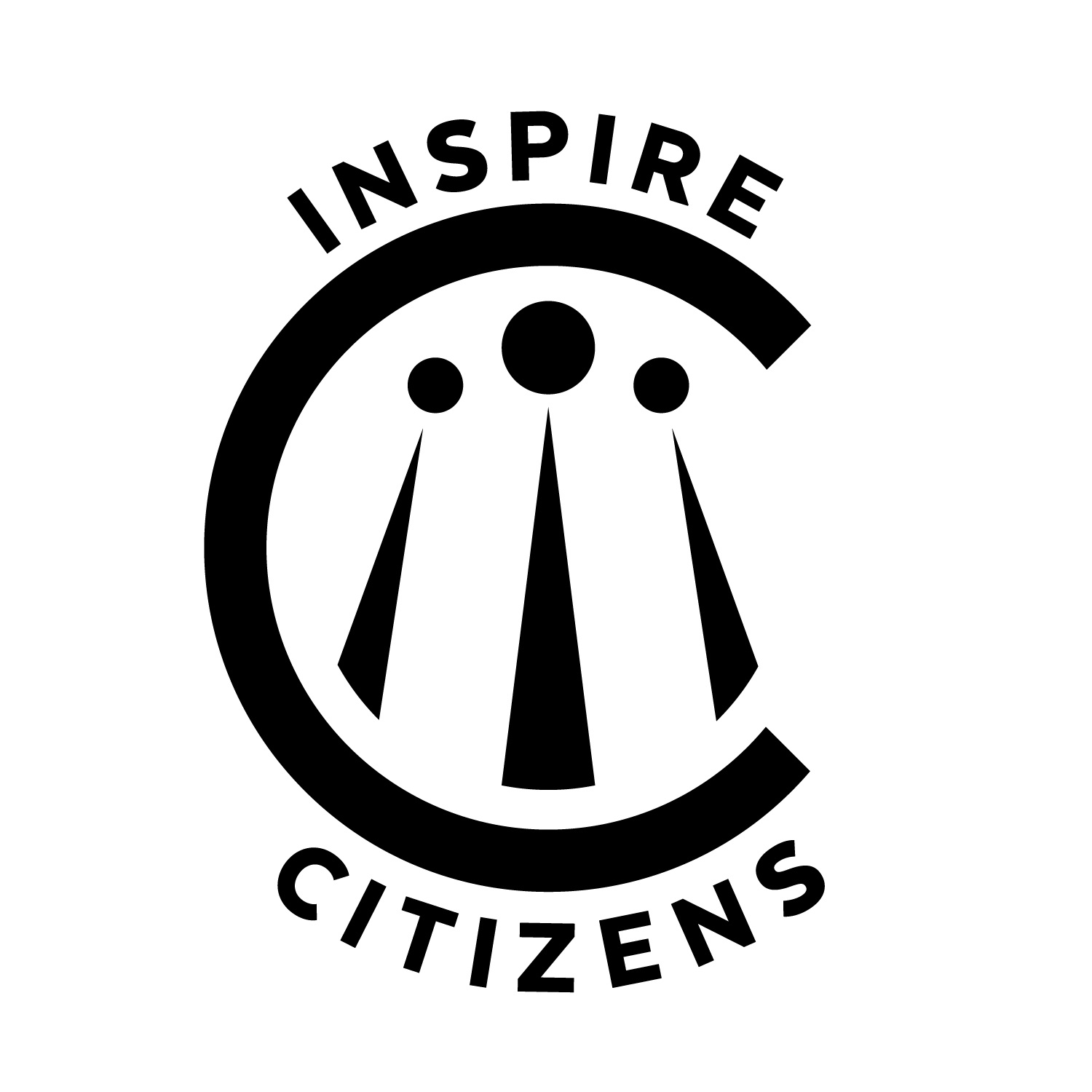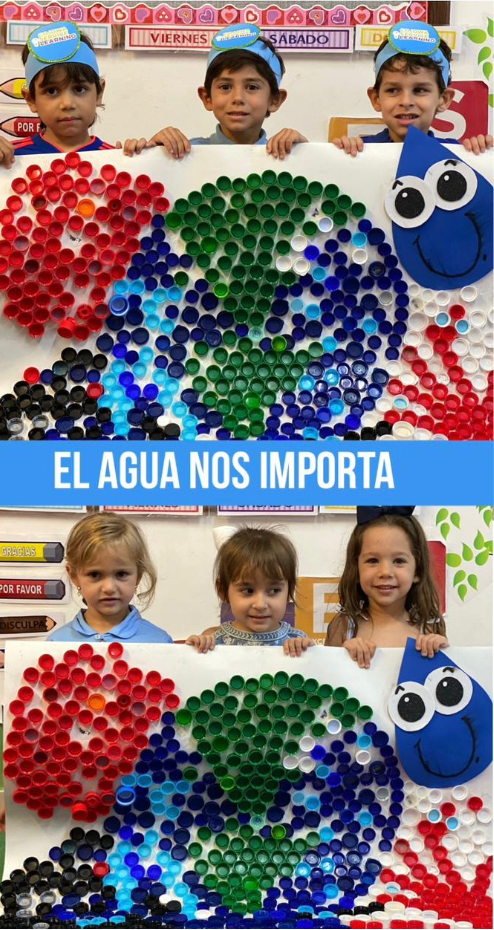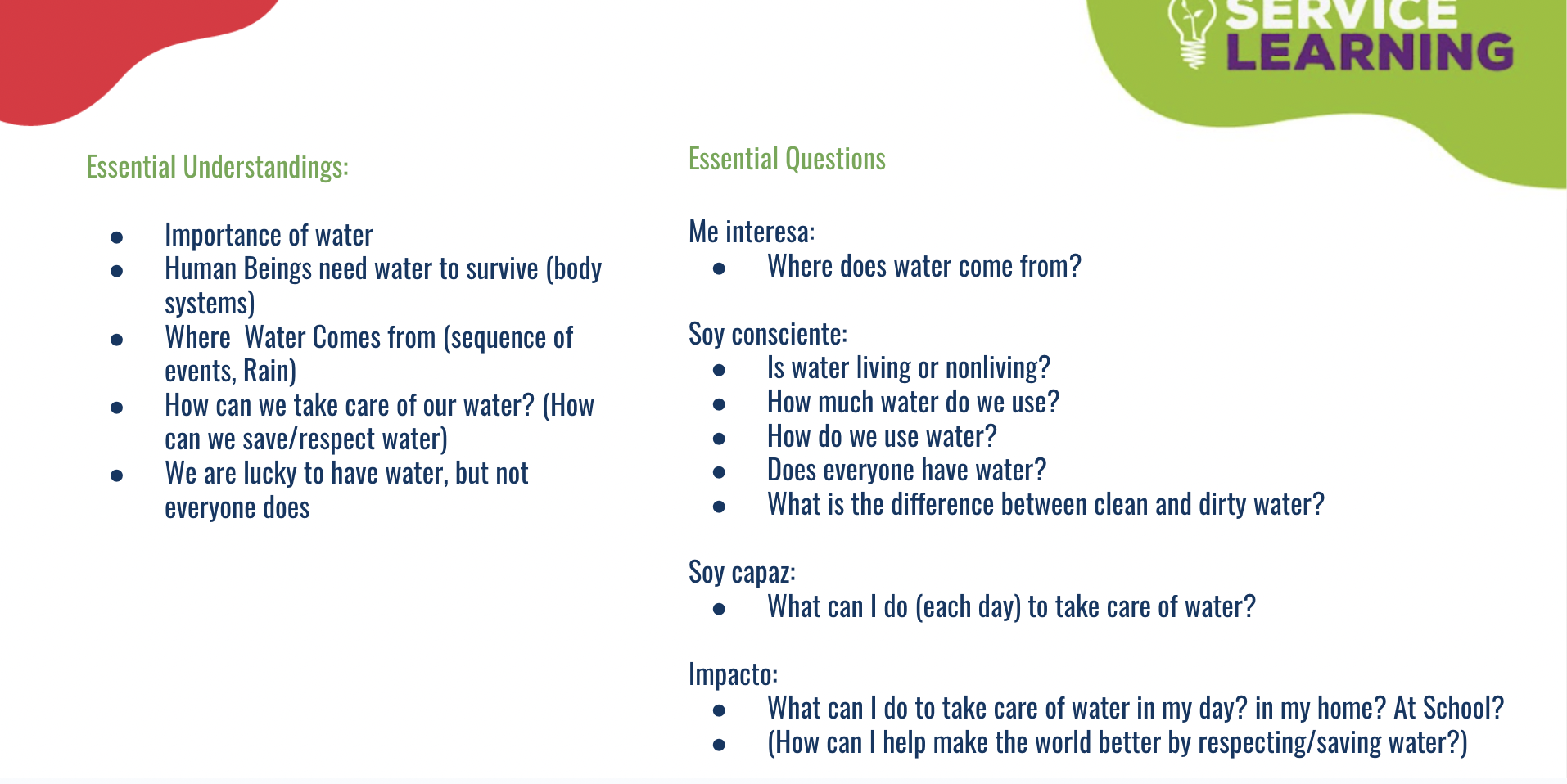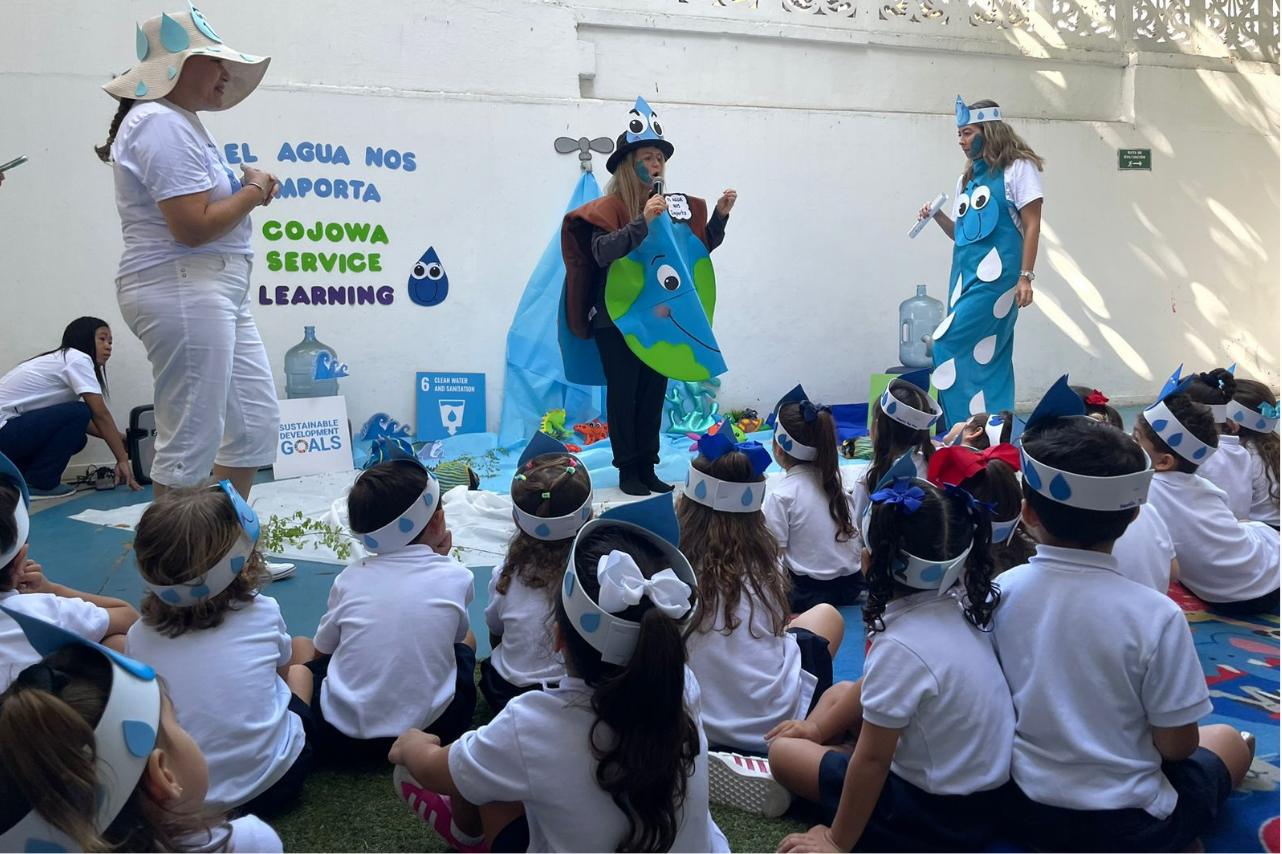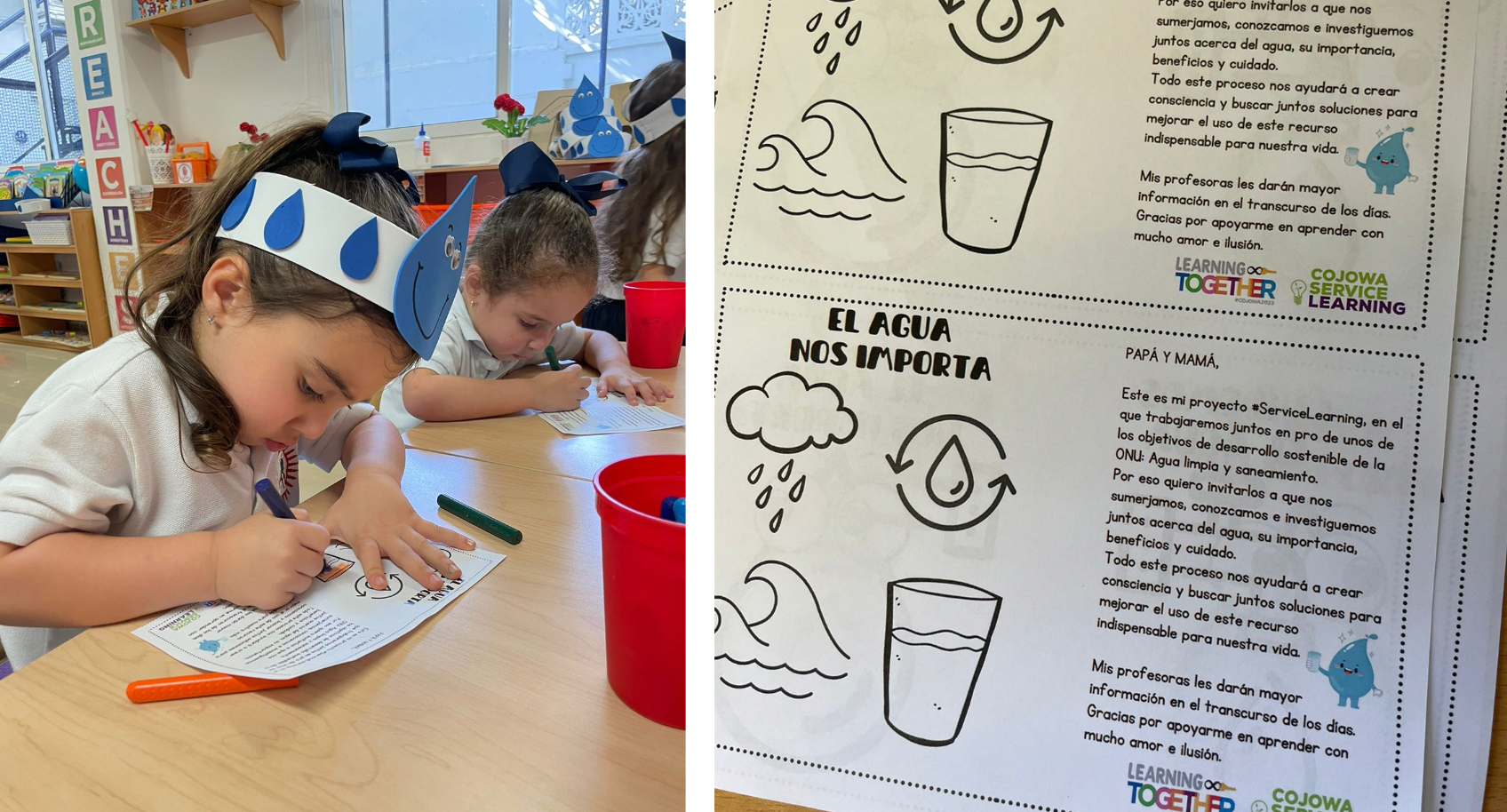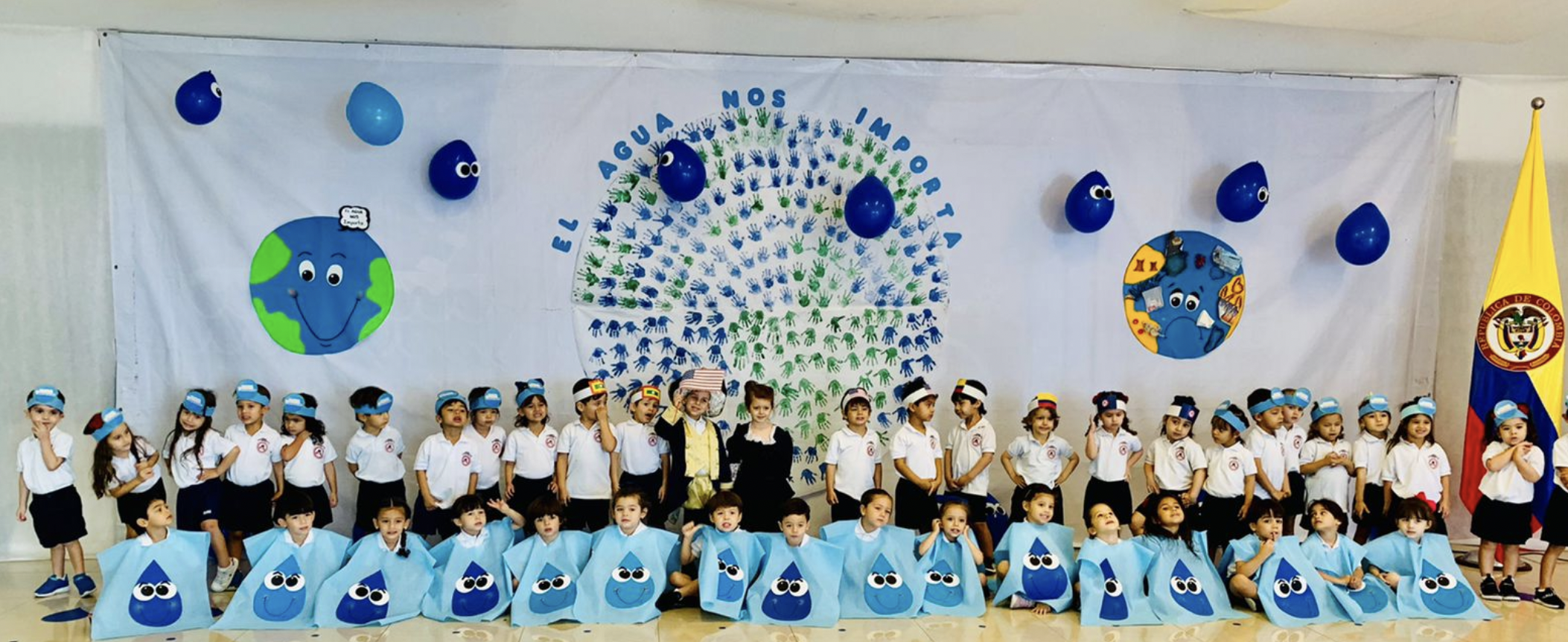Preschool Students Learn about and Advocate for Water Conservation
Young learners at COJOWA (Colegio Jorge Washington in Cartagena, Colombia), are embarking on a journey to raise awareness about water conservation, and their enthusiasm is nothing short of inspiring. Partnering with Inspire Citizens, the school's pre-school initiative, known as the Maternal Water Project, is making waves in early childhood education.
Gloria Tangarife, the Pre-School Principal at COJOWA, has watched this impactful initiative unfold over two years. It all began last year when Gloria and her team decided to integrate Project-Based Learning (PBL) into the curriculum and make meaningful connections with service learning. The question they pondered was whether three-year-olds could actively participate in such an endeavor and, more importantly, how to make them feel they could contribute to global conversations about important issues like water conservation.
COJOWA's Maternal class is for 3- and 4-year-olds and is a Spanish program. In Pre-Kinder, students move to a bilingual program that emphasizes strong oral communication skills in both Spanish and English. This year, the Maternal class teachers embarked on a journey to align their regular curriculum standards with a single project that touched on science, values, mathematics, and Spanish, all while addressing Sustainable Development Goal (SDG) #6, focusing on clean water and sanitation.
Their curriculum was thoughtfully designed to intertwine various aspects of learning. In science, the young scholars delved into topics such as the human body and the importance of water. They discovered that all living things need water to survive. In Spanish, they immersed themselves in comprehension and literature about water, nurturing language skills.
“The central question that sparked curiosity and drove the project was simple yet profound: ‘Why does water matter?’,” says Gloria. “The students began by exploring ideas through games and activities designed to foster a deep understanding of water's significance and how it can be preserved.”
This central question reflects the Care and Aware parts of the Inspire Citizens’ empathy to impact cycle.
Taking inspiration from the Montessori philosophy for preschool education, the classrooms began to reflect on the importance of water conservation. Watering plants around the classroom and using water to clean lunch tables raised awareness about daily water consumption. The students began to observe how frequently they used water throughout the day, cultivating a newfound appreciation or care for this precious resource.
In a powerful experiential lesson, the children experienced a day without access to water at school. They couldn't use taps and had to transport buckets of water for various tasks like washing hands, flushing toilets, and watering plants. This hands-on exercise helped them draw connections between their own experiences and the plight of those who lack access to clean water.
Their newfound insights and awareness were brilliantly showcased through a presentation.
“The students dressed up as a joyful Mother Earth, symbolizing a world where everyone takes responsibility for water conservation,” says Gloria. “The teachers created a ‘circle of life’ to illustrate the value of water, and they created individual ‘water drop’ posters to convey key insights. They also addressed the darker side of water misuse, portraying a saddened Mother Earth plagued by ocean pollution and wasteful water habits.”
Art, music, and a flag ceremony were all part of the students' repertoire as they took action to educate their peers in preschool about the importance of water conservation. They even launched a campaign for demonstrating water conservation practices at home, and parents enthusiastically joined in, sharing videos of actions taken at home alongside their children. Many parents reported that their children had become passionate advocates for water conservation at home, showcasing a remarkable transfer of knowledge.
The impact of this project was deep. "I was so proud of this project," said Gloria.
The project's ripple effect is evident as these students, now in Pre-Kinder, continue to discuss the importance of valuing water.
This collaborative effort involved 45-47 students across three classes. Teachers worked together to plan and execute the project, leveraging each other's strengths. One teacher excelled in artistic endeavors and contributed to posters and artwork, while another teacher added musical elements. Occasionally, all three classes joined forces for joint activities.
Jessica Benitez, Community Engagement Coordinator at COJOWA, highlights the creativity and dedication of the teaching team, observing that they spent a lot of time planning and connecting with families.
“We are excited to bring PBL service learning projects to preschool,” says Jessica. “The Inspire Citizens model involves the cycle of ‘care, aware, able, and impact.’ Now, when Gloria has a PBL project in preschool, teachers want to add this service learning cycle.”
Gloria emphasized the power of investigating how to make a difference, no matter how small an action may seem. "Little steps make huge changes in the world," she said, highlighting a valuable lesson learned during the unit.
Gloria notes that connecting the curriculum to real-life outcomes creates excitement and engagement among students. The success of this project has sparked a new mindset among teachers, too, who are more eager to participate in service learning projects. And COJOWA's partnership with Aaron Moniz and Inspire Citizens plays a pivotal role in helping teachers bridge the gap between academic standards and real-world impact.
Jessica echoes this sentiment, adding that teachers are now seeking more support from Inspire Citizens for PBL planning and service learning. She emphasizes that the organization's positive reinforcement and celebration of teachers' efforts create a lot of momentum throughout the school’s teaching teams.
